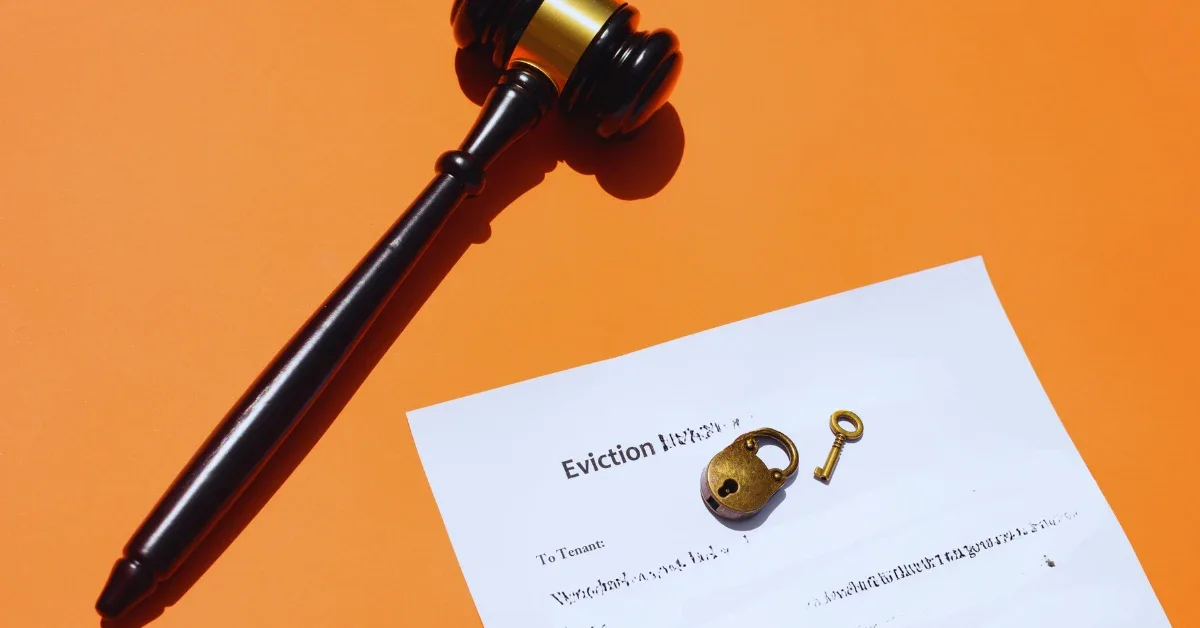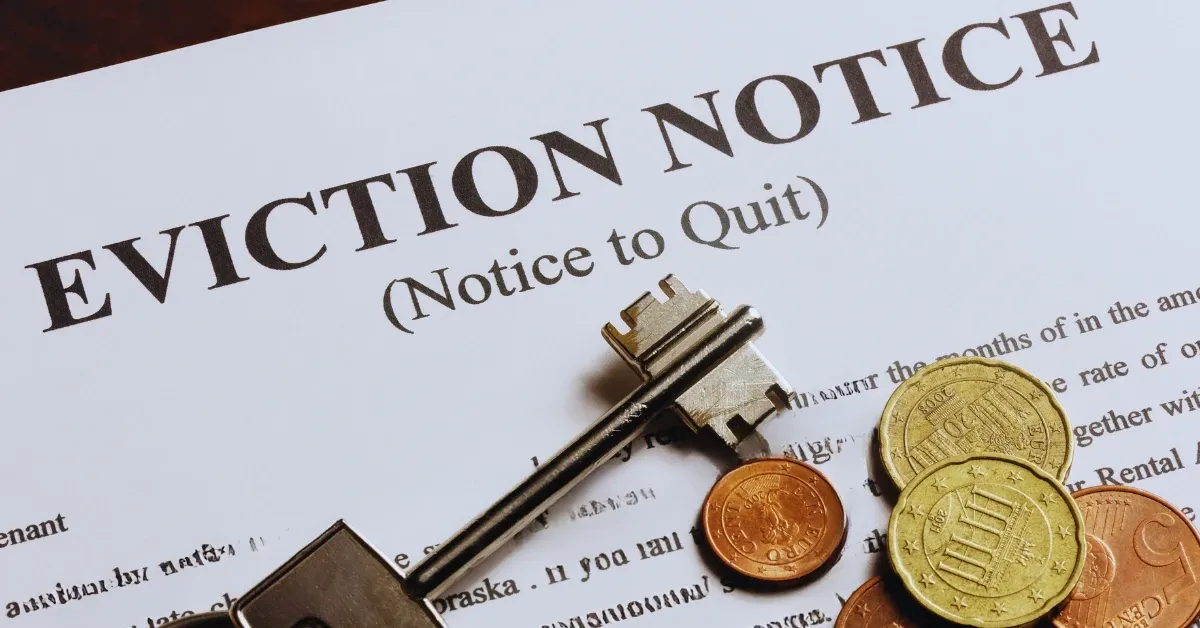It takes around 2-4 weeks to evict a tenant in Kentucky. The process involves serving notice, filing a petition, attending a court hearing, and waiting for the sheriff’s notice.
Evicting a tenant in Kentucky can be a tedious and time-consuming process, as it involves several legal proceedings.
Landlords must follow the correct procedure to avoid any legal actions and ensure that the eviction process is completed quickly.

Understanding Eviction Laws In Kentucky
Evicting a tenant in Kentucky is never an easy decision for landlords, but sometimes it’s the only option left.

According to Kentucky eviction laws, a landlord has legal rights to remove a tenant from their property under certain circumstances such as non-payment of rent, violating lease agreements, or causing damage to the property.
Different Types Of Evictions And Their Requirements
Understanding the different types of evictions available is essential for landlords to make informed decisions.
Kentucky law has different types of evictions, including non-payment of rent, lease violations, and drug-related activity on the property.
Each case requires certain requirements to be met to ensure a smooth eviction procedure.
Non-payment of rent
The landlord should issue a written notice to the tenant detailing that rent is past due. If rent is not paid or an agreement is not reached, eviction proceedings can begin.
Lease violations
If the tenant violates any of the lease clauses, the landlord must issue a written notice demanding compliance with the lease terms before proceeding with eviction proceedings.
Drug-related activity
The landlord is required to provide written notice about the drug-related activity to the tenant and the authorities before proceeding with eviction.
The Eviction Process In Kentucky
The eviction process is governed by Kentucky law and must be followed to avoid facing legal repercussions.
Once the landlord decides to evict a tenant and has followed the proper notice requirements, the next step is to file a lawsuit with the local court.
The tenant will then be served a summons and a court date will be scheduled. The tenant can then respond to the lawsuit, and a final hearing date will be set.
Understanding The Rights Of Landlords And Tenants
It’s crucial for both landlords and tenants to be aware of their rights before entering into a lease agreement. So, what are the rights of landlords and tenants in Kentucky?
Landlord rights
A landlord has the right to collect rent, damage deposits, and retain the right to evict a tenant.
They can also enter the property for reasonable repairs and maintenance with advanced written notice to the tenant.
Tenant rights
A tenant has the right to a habitable living environment and to enjoy the space without any interference from the landlord.
They also have the right to know the landlord’s contact information, the amount of rent to be paid, and the reason for any non-renewal or eviction.
Being aware of Kentucky eviction laws and their requirements is crucial for landlords and tenants.
It’s essential to understand the eviction process and the rights a landlord and tenant have to avoid facing legal consequences.
By following the Kentucky eviction laws and understanding your rights, both landlords and tenants can rest assured that they are protected under the law.
Timeline For Evicting A Tenant In Kentucky
Evicting a tenant in Kentucky is a process that requires following the legal requirements, which can take a considerable amount of time.
The timeline for evicting a tenant depends on various factors, such as the reason for eviction, the tenant’s response, and the court proceedings.
Notice Requirements For Eviction
Before initiating the eviction process in Kentucky, landlords must provide proper notice to tenants.
The type of notice and time allowed for the tenant to take corrective action vary depending on the reason for eviction.
Here are the notice requirements for eviction in Kentucky:
- Non-payment of rent – 7-day notice
- Breach of the lease agreement – a 15-day notice
- Holdover tenancy – 30-day notice
- Illegal activities – immediate notice
The Timeframes For Each Step Of The Eviction Process
The eviction process in Kentucky involves several steps that can take time to complete.
The timeframes for each step of the process vary depending on the case’s complexity, court schedules, and tenant’s response.
Here’s an overview of the timeframes for the eviction process in Kentucky.
- Notice period – the landlord notifies the tenant of eviction and waits for the specified period.
- Filing a complaint – if the tenant fails to comply after the notice period, the landlord can file a complaint with the court.
- Serving the tenant – the court serves the tenant with a summons and a complaint, informing them of the legal action and the deadline for response.
- Tenant response – the tenant can file an answer, counterclaim, or defence within seven days after receiving the summons.
- Court hearing – if the tenant responds, the court schedules a hearing between 7-14 days after the answer.
- Judgment – the judge makes a decision for eviction, and the tenant must vacate the property within 7 days.
- Writ of possession – if the tenant fails to vacate, the landlord can obtain a writ of possession from the court, allowing the sheriff to remove the tenant from the property.
Key Factors That Impact Eviction Timeframes
Apart from the legal process, several factors can impact the time it takes to evict a tenant in Kentucky.

Understanding these factors can help landlords prepare for the eviction process’s potential delays and challenges.
Here are some key factors that impact eviction timeframes in Kentucky:
The tenant’s response
A tenant’s response to the eviction notice can impact the time it takes to evict them. If they challenge the eviction in court, it can cause delays and require further hearings.
The landlord’s documentation
Failing to provide accurate documentation of the tenant’s lease agreement and notice can cause delays in the eviction process.
The court’s scheduling
The court’s schedule can cause delays in the eviction process, especially when there are many cases pending.
Tenant relocation
In some cases, tenants may refuse to vacate the property, which can lead to a more extended eviction process and require additional legal action.
The eviction process in Kentucky can take several weeks or even months to complete, depending on various factors.
By adhering to the notice and legal requirements and preparing for potential delays, landlords can ensure a smoother eviction process.
Strategies For Streamlining The Eviction Process
Evicting a tenant can be a complex and time-consuming process, especially in Kentucky, where laws and regulations regarding evictions can be quite different from those in other states.
However, there are several strategies that can help streamline the eviction process for landlords and property owners, such as:
Preparing Proper Documentation
Before starting the eviction process, it is crucial to ensure that all necessary documentation is in order.
This includes the lease agreement, any notices served to the tenant, and any communication related to rent payments and non-compliance issues.
The documentation should be organized and readily available in case it is needed as evidence in court.
Preparing an eviction notice may be the first step in the process. In Kentucky, landlords are required to provide written notice to their tenants before initiating eviction proceedings.
This notice must be delivered in person or via mail, and it must include specific information, such as the reason for eviction, the amount of rent owed (if applicable), and a date by which the tenant is required to vacate the premises.
Communication And Negotiation Tactics
While an eviction notice may be necessary, communication and negotiation with the tenant can often help resolve the issue without resorting to legal action.
Open and respectful communication can help identify the root of the problem and find a mutually beneficial solution.
Additionally, landlords can consider negotiating a payment plan or lease modification to help tenants get back on track with their rent payments.
It is essential to document all communication and negotiate in writing, such as email.
Working With A Legal Professional
Evictions can be complicated, and in Kentucky, legal representation is recommended throughout the process.
A legal professional with expertise in landlord-tenant law can ensure that all proper protocol is followed, including proper notice and filing of eviction paperwork.
An attorney can also represent landlords in court if necessary.
Tips For Avoiding Eviction Delays
Delays in the eviction process can be costly and frustrating for landlords. To avoid unnecessary delays, landlords can follow these tips:
- Comprehensively screen prospective tenants before signing a lease agreement.
- Ensure that all documentation is in order before initiating the eviction process.
- Communicate openly and respectfully with the tenant to attempt to resolve the issue before starting the eviction process.
- Negotiate a payment plan or lease modification if it helps the tenant to get back on track with their rent payments.
- Seek legal advice and representation throughout the process.
While the process of evicting a tenant in Kentucky can be complicated, there are several strategies that landlords can use to streamline the process and avoid unnecessary delays.
By preparing proper documentation, communicating effectively, and working with legal professionals, landlords can navigate the eviction process with confidence.
Frequently Asked Questions Of How Long Does It Take To Evict A Tenant In Ky
How Long Does It Take To Evict A Tenant In Ky?
The time it takes to evict a tenant in ky depends on different factors. It could vary from 14 to 21 days.
How Do I Start The Eviction Process In Ky?
Starting the eviction process in ky involves serving a written notice to the tenant. Then, you file a complaint in court.
Can I Evict A Tenant Without Going To Court In Ky?
No, in ky, you cannot evict a tenant without going to court. You must follow the legal eviction process.
What Are The Reasons For Eviction In Ky?
In ky, tenants can be evicted for different reasons, including lease violation, not paying rent or illegal activity. It is essential to follow the legal eviction process.
Conclusion
Navigating the eviction process in Kentucky can be complex, requiring time and patience. On average, it takes about a month, but specific circumstances can prolong the period.
Ensure you fully understand your rights and responsibilities as a landlord to create a smoother process for everyone involved.
Reference
https://teamkyedp.ky.gov/
